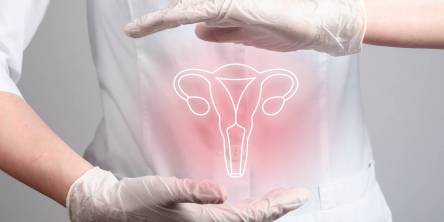6 Myths About Periods That Should Be Addressed ASAP
Despite the fact that around half of the world's population experiences, will experience, or has experienced menstruation, misunderstandings regarding this biological process remain. For far too long, girls and women felt compelled to gather information from whispers in locker rooms, as if it were a game of period "telephone." In this article, we have gathered six myths about periods that should be addressed ASAP
1. You can't conceive during periods
Don't give up using condoms because you're on your period; your odds of becoming pregnant while on your period are small, but they're still there. Your menstrual cycle occurs while your body prepares for pregnancy by releasing an egg and thickening the uterine lining. Many individuals believe that after your body sheds its lining, you can no longer become pregnant.
While it is true that you cannot become pregnant while this is occurring, sperm may survive in your body for up to 5 days. This means that any sperm that enters your body can survive both during and after your period, at which point you are perfectly capable of becoming pregnant.
2. Irregular periods are harmful to your reproductive health
If you've missed your period, first consult with your doctor. After the first occurrence, it might take anywhere from 6 months to a year to become regular. And it never gets entirely normal for some girls. There are several factors that might disrupt your cycle, including stress, illness, and strenuous activity. That is why it is better to visit a gynecologist in this case.
3. Pain during periods is not so bad
The pain women experience during periods can be serious. We're not talking about getting a headache or running into a sharp corner. Because the pinching cramps are so severe, some of us have to take time off work and snuggle up in bed, hoping they will go away. Dysmenorrhea is a medical term for this problem.
In reality, around 20% of women suffer from severe dysmenorrhea that interferes with their regular activities. This condition impairs our capacity to focus, increases our anxiety, and can even make us nasty. It's also unlike anything you've ever encountered.
4. Missed periods mean that you are pregnant
A missed or late menstruation does not always indicate that you are pregnant. Hormonal abnormalities such as polycystic ovarian syndrome, obesity, an unhealthy diet, sickness, and stress can all make your periods late or disappear. That’s why it is better to make an appointment with a gynecologist to define the exact causes of missed periods.
5. Taling a bath during periods is unsafe
Some people believe that taking a bath or even a shower during your period is dangerous. This is either because hot water encourages bleeding or because it stops bleeding, both of which can be harmful. However, having a bath might help you feel better. Because hot water can increase blood flow, it can also assist reduce period cramps and muscle stress.
The bleeding does not cease after complete immersion in water. However, the water's pressure may momentarily block blood from flowing out of the vagina. Soaking in a bubble bath and feeling cleaner will boost your mood and help you manage your menstrual symptoms more effectively.
6. All women have PMS
PMS affects one in every four women, with some experiencing just moderate symptoms. Furthermore, around 5% of women of reproductive age will suffer from PMDD, a severe type of PMS marked by rapid and strong mood fluctuations. While many women have physical symptoms (such as exhaustion, bloating, and breast soreness) in the week before their period, emotional changes are less prevalent.
Similar Articles
Uterine fibroids are benign tumors that develop in the uterine muscle tissue. According to the US Office on Women's Health (OWH), fibroids can grow as a single tumor or as a cluster in the uterus, and they can be as small as an apple seed or as large as a grapefruit.
Your pregnancy test came back positive, and nothing, not even early pregnancy symptoms like morning sickness or exhaustion, can dampen your spirits. However, it is natural to worry about what to do when you discover you are pregnant.
A breast lift, like any other operation, involves skin incisions. Scarring occurs when your skin generates new tissues and mends the wound after an incision. There are, however, measures to reduce scarring before, during, and after a breast lift.
The cervix's proper functioning is crucial to a woman's reproductive health and fertility. However, most women do not know anything or have a limited understanding of it. As a result, there are numerous misconceptions surrounding cervical health.
Do many nighttime wake-up calls or interruptions to your daytime activities result from frequent bathroom visits? Six to seven trips to the bathroom in a 24-hour period is normal for most people. However, urinating more frequently could be a symptom of a serious problem.
The cervix is the lower part of the womb (uterus), where the fetus develops during pregnancy. A tiny hole in the cervix widens during birthing. It also lets menstrual blood exit her body.
Shatavari is a very renowned ayurvedic herb containing plenty of health benefits. It is also known as the universal rasayan. The word shatavari refers to a woman with a hundred husbands signifying the traditional use of this herb to boost the reproductive system of the body.
Throughout your life, you may anticipate getting your period roughly 450 times. Even if you've gotten the hang of your cycle, there's a good possibility that some menstruation mysteries remain unanswered
Annual gynecological check-ups are essential for every woman to stay healthy. However, there are a lot of conditions that require medical attention. You should understand that the sooner you will be diagnosed and treated, the easier and more effective the treatment will be









